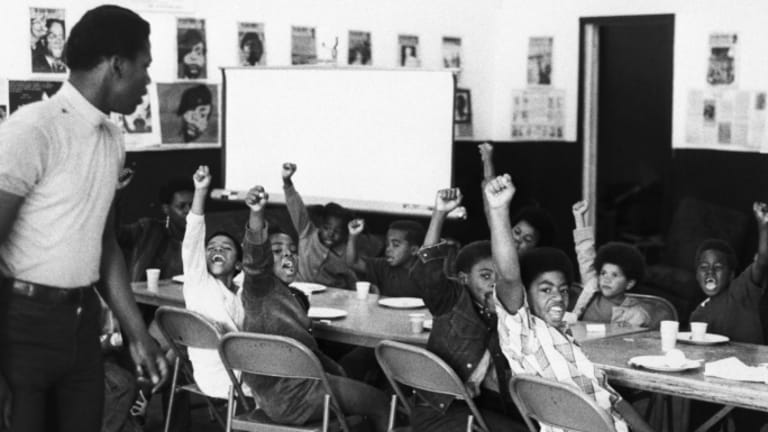Mutual Aid

I was happy to talk Samantha Fields from Marketplace on the history of mutual aid. These ideas are rising again for the same reason it existed from 19th century immigrant organizations to the Black Panthers–to step into the gap left by a failing state.
Mutual aid has, at various points, been a “major, major part of American history,” said Erik Loomis, a labor historian at the University of Rhode Island.
In the 19th and early 20th century, new immigrants to the U.S. often formed mutual aid societies to take care of one another. So did the labor movement. And in the 1960s and ’70s, the Black Panthers stepped in and provided mutual aid to Black communities around the country, feeding and educating kids, providing free medical care and helping people with other basic needs.
To see so many people turning to mutual aid now during the pandemic and the protests, Loomis said, is both heartening and disheartening.
“The rise of mutual aid in very recent times is closely related to the fact that you have a society that’s once again failing its citizens. Where a social safety net is being cut, where people don’t feel like they have anywhere they can go, where they don’t feel like the government is going to provide what it once did,” he said. “It becomes a way that I can express solidarity, especially in a world where I’m not supposed to leave the house.”
It has also become a way for people to express solidarity with protestors if they don’t feel comfortable taking to the streets themselves in the midst of a pandemic.
“I think a lot of the conversation is, if you cannot show up to protest on the front lines, that’s completely OK, but support the work of those who are serving communities of color and really providing direct services and assistance at this time,” Mariam said. “And mutual aid work is definitely that.”
I agree with that last point as well. I stated more or less the same thing when I was talking to her, noting that people are at home and they don’t know what to do and donating to bail funds or whatnot is a way of expressing solidarity when one is feeling adrift in a difficult world.


